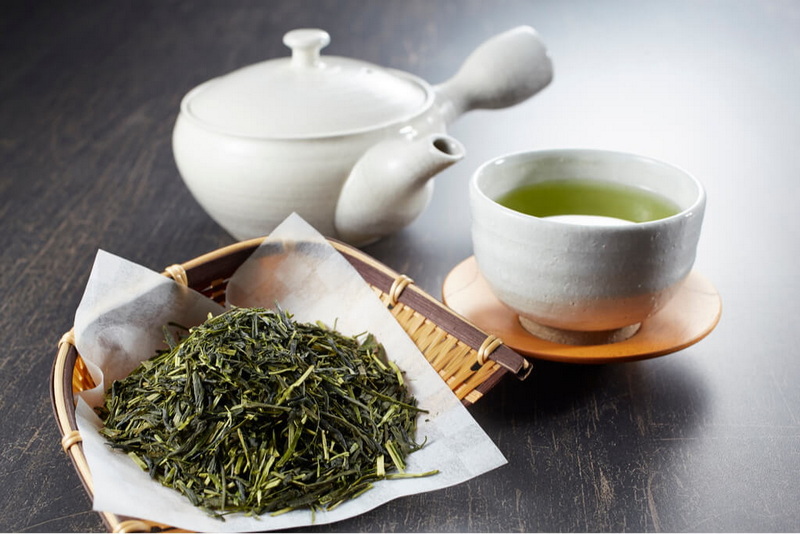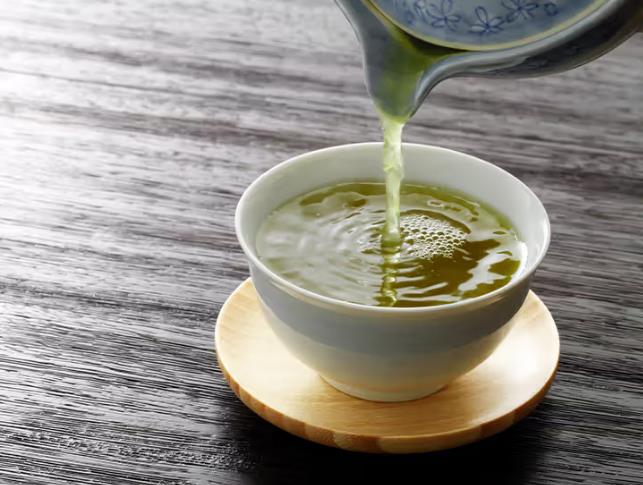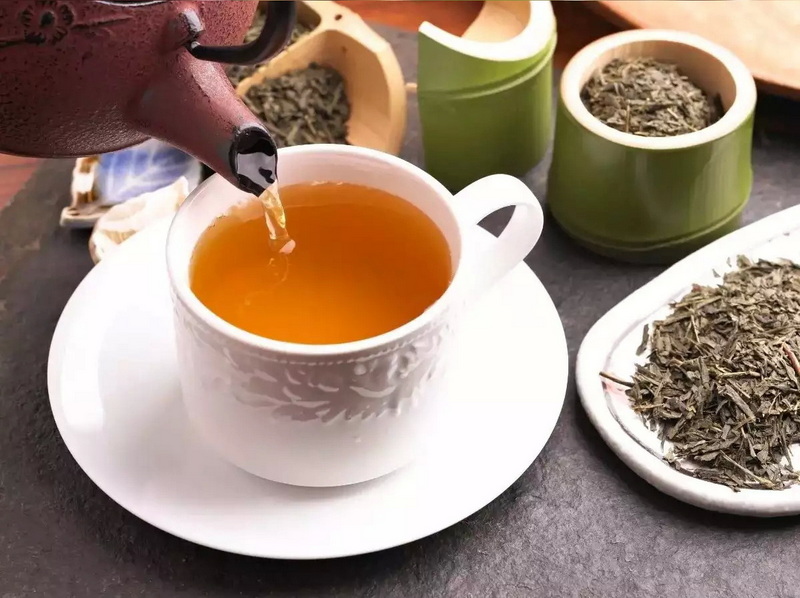Content Menu
● Understanding Green Tea Extract
● Potential Health Benefits
● Safety Considerations
>> Dosage and Concentration
>> Liver Health Concerns
>> Individual Sensitivity
● Safe Consumption Guidelines
● Monitoring for Adverse Effects
● Special Precautions
● The Role of Quality and Purity
● Balancing Benefits and Risks
● Conclusion
● FAQ
>> 1. What is the recommended daily dose of green tea extract?
>> 2. Can green tea extract interact with medications?
>> 3. Are there any groups of people who should avoid green tea extract?
>> 4. How can I recognize signs of liver problems from green tea extract?
>> 5. Is it better to drink green tea or take green tea extract supplements?
● Citations:
Green tea extract has gained popularity as a dietary supplement due to its potential health benefits. However, concerns about its safety, particularly regarding daily consumption, have emerged. This article will explore the safety aspects of taking green tea extract every day, examining both its benefits and potential risks.

Understanding Green Tea Extract
Green tea extract is a concentrated form of green tea, containing high levels of polyphenols, particularly catechins. The most abundant and well-studied catechin in green tea is epigallocatechin-3-gallate (EGCG), which is believed to be responsible for many of its health benefits[3].
Potential Health Benefits
Green tea extract has been associated with numerous health benefits, including:
1. Weight loss support
2. Improved brain function
3. Antioxidant properties
4. Heart health promotion
5. Blood sugar regulation
These benefits are largely attributed to the high concentration of catechins, especially EGCG, found in green tea extract[6].
Safety Considerations
While green tea extract offers potential health benefits, its safety profile is complex and depends on various factors.
Dosage and Concentration
The safety of green tea extract is closely tied to its dosage and concentration. According to the European Food Safety Authority (EFSA), catechins from green tea infusions and similar drinks are generally safe[4]. However, when taken as food supplements, catechin doses at or above 800 mg/day may pose health concerns[4].
Liver Health Concerns
One of the primary safety concerns associated with green tea extract is its potential impact on liver health. While rare, cases of liver injury have been reported in connection with green tea extract consumption[8].
The EFSA concluded that intake of doses equal to or above 800 mg EGCG/day taken as a food supplement has been shown to induce a statistically significant increase of serum transaminases in treated subjects compared to control[9]. This increase in liver enzymes could indicate liver stress or damage.
Individual Sensitivity
It's important to note that individual reactions to green tea extract can vary. Some people may be more sensitive to its effects due to genetic factors, pre-existing health conditions, or interactions with medications[5].
Safe Consumption Guidelines
Based on current research and expert recommendations, the following guidelines can help ensure safer consumption of green tea extract:
1. Dosage: A safe intake level of 338 mg EGCG/day for adults has been derived from toxicological and human safety data for tea preparations ingested as a solid bolus dose[7].
2. Form of Consumption: Green tea extract in beverage form may have a higher safety threshold. An Observed Safe Level (OSL) of 704 mg EGCG/day might be considered for tea preparations in beverage form based on human adverse event data[7].
3. Timing of Intake: It's recommended to take green tea extract with food rather than on an empty stomach to reduce the risk of adverse effects[6].

Monitoring for Adverse Effects
If you choose to take green tea extract daily, it's crucial to be aware of potential signs of adverse effects, particularly those related to liver health. Stop use and consult a healthcare professional if you experience any of the following symptoms[8]:
- Yellowing of the skin or eyes (jaundice)
- Stomach pain
- Dark urine
- Sweating
- Nausea
- Unusual tiredness
- Loss of appetite
Special Precautions
Certain groups should exercise extra caution or avoid green tea extract altogether:
1. People with liver disorders
2. Individuals with caffeine sensitivity
3. Those taking medications that may interact with green tea extract
4. Pregnant or breastfeeding women
Always consult with a healthcare professional before starting any new supplement regimen, especially if you have pre-existing health conditions or are taking medications.
The Role of Quality and Purity
The safety of green tea extract can also be influenced by the quality and purity of the product. Choose supplements that have been independently tested for purity and content verification[6]. Look for products that specify their EGCG content and adhere to good manufacturing practices.
Balancing Benefits and Risks
While green tea extract offers potential health benefits, it's essential to balance these against the potential risks. For many people, consuming green tea as a beverage may be a safer alternative to concentrated extracts, providing similar benefits without the increased risk of adverse effects[1].
Conclusion
The safety of taking green tea extract every day depends on various factors, including dosage, form of consumption, individual sensitivity, and overall health status. While moderate consumption of green tea extract can be safe for most healthy adults, high doses, particularly in supplement form, may pose risks, especially to liver health.
To minimize risks while potentially benefiting from green tea extract:
1. Stick to recommended dosages (below 338 mg EGCG/day for supplements)
2. Consider consuming green tea as a beverage instead of in extract form
3. Take supplements with food
4. Be aware of potential side effects and stop use if they occur
5. Consult with a healthcare professional before starting any new supplement regimen
Ultimately, while green tea extract can be a beneficial addition to a healthy lifestyle for many people, it's crucial to approach its consumption mindfully and with an awareness of both its potential benefits and risks.

FAQ
1. What is the recommended daily dose of green tea extract?
The recommended daily dose of green tea extract varies depending on the form and concentration. For supplements, a safe intake level of 338 mg EGCG/day for adults has been suggested. However, it's always best to follow the dosage instructions on the product label and consult with a healthcare professional.
2. Can green tea extract interact with medications?
Yes, green tea extract can interact with various medications. It may affect the absorption and effectiveness of certain drugs, including but not limited to blood thinners, some antibiotics, and certain heart and blood pressure medications. Always consult with your healthcare provider about potential interactions before taking green tea extract.
3. Are there any groups of people who should avoid green tea extract?
Certain groups should exercise caution or avoid green tea extract, including people with liver disorders, individuals with caffeine sensitivity, those taking medications that may interact with green tea extract, and pregnant or breastfeeding women. It's always best to consult with a healthcare professional before starting any new supplement regimen.
4. How can I recognize signs of liver problems from green tea extract?
Signs of potential liver problems from green tea extract include yellowing of the skin or eyes (jaundice), stomach pain, dark urine, sweating, nausea, unusual tiredness, and loss of appetite. If you experience any of these symptoms, stop taking the supplement and consult a healthcare professional immediately.
5. Is it better to drink green tea or take green tea extract supplements?
For most people, drinking green tea as a beverage may be safer than taking concentrated green tea extract supplements. Green tea in its natural form provides similar benefits without the increased risk of adverse effects associated with high-dose extracts. However, the choice between the two depends on individual health goals and should be discussed with a healthcare provider.
Citations:
[1] https://www.webmd.com/vitamins/ai/ingredientmono-960/green-tea
[2] https://www.urmc.rochester.edu/encyclopedia/content?contenttypeid=19&contentid=greenteaextract
[3] https://pmc.ncbi.nlm.nih.gov/articles/PMC2855614/
[4] https://www.efsa.europa.eu/en/press/news/180418
[5] https://www.medicalnewstoday.com/articles/269538
[6] https://www.healthline.com/nutrition/10-benefits-of-green-tea-extract
[7] https://pubmed.ncbi.nlm.nih.gov/29580974/
[8] https://www.canada.ca/en/health-canada/services/drugs-health-products/medeffect-canada/safety-reviews/green-tea-extract-containing-natural-health-products-assessing-potential-risk-liver-injury.html
[9] https://www.efsa.europa.eu/en/efsajournal/pub/5239
[10] https://www.vumc.org/poison-control/toxicology-question-week/march-12-2021-what-are-adverse-effects-green-tea-extract
[11] https://www.canada.ca/en/health-canada/services/food-nutrition/public-involvement-partnerships/notice-modification-list-permitted-supplemental-ingredients-permit-use-green-tea-extract-supplemental-ingredient-foods/document.html
[12] https://www.tga.gov.au/news/safety-alerts/camellia-sinensis-green-tea-extract






























